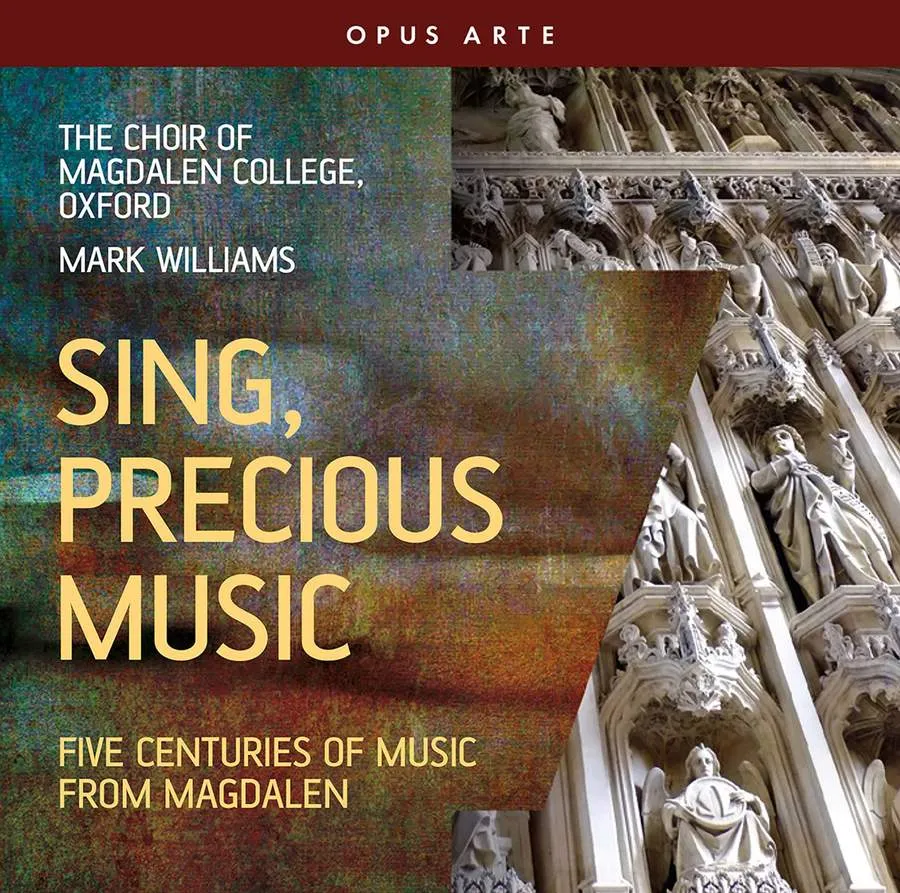
Sing, Precious Music Choral Works by McKie, Stainer, J Sheppard, Appleby, Tomkins, Roderick Williams, Steven Griffin, Grayston Ives, et al The Choir of Magdalen College, Oxford/Mark Williams Opus Arte OACD9046D 76:45 mins
The Chapel of Magdalen College, Oxford has boasted a choir for nigh on five and a half centuries; and, recorded in the Chapel of Merton, this eclectic love letter to itself tracks a snapshot of Magdalen musicians through time stretching back to Thomas Appleby who was appointed Informator Choristarum in 1539. Some, such as Appleby’s successor John Sheppard, or Thomas Tomkins, are well known. Others are perhaps more familiar, if at all, in ‘Choirs and Places where they Sing’. And in his desire to present a well-rounded picture, the current Informator Choristarum, Mark Williams, has assembled some curious choices. William McKie’s ‘We wait for Thy loving kindness’ makes for an effective introit, whilst Stainer’s stalwart ‘I Saw the Lord’ ensures a grandiose Victorian valediction; but in between, not all the music rises to the sublime level of Sheppard’s ‘Kyrie Lux et Origo’, (Williams’s reading a thing of richly compelling refulgence).
On the evidence of ‘Lord, Thou hast been our refuge’, Handel’s friend William Hayes seems to have been a competent-enough composer though not overly inspired; and although John Varley Roberts might have ushered in a golden age as choral director (so opined Sir Thomas Beecham), his setting of ‘Seek ye the Lord’ is saccharine and vacuously derivative. Powerful correctives are Matthew Martin’s ‘Hymn to St Etheldreda’ with its dramatic organ interjections, and John Harper’s double choir ‘Salve Regina’, a deftly impassioned setting – both beneficiaries of the choir’s bright treble line and the Clerks’ ability to modulate their vocal testosterone.
Paul Riley
